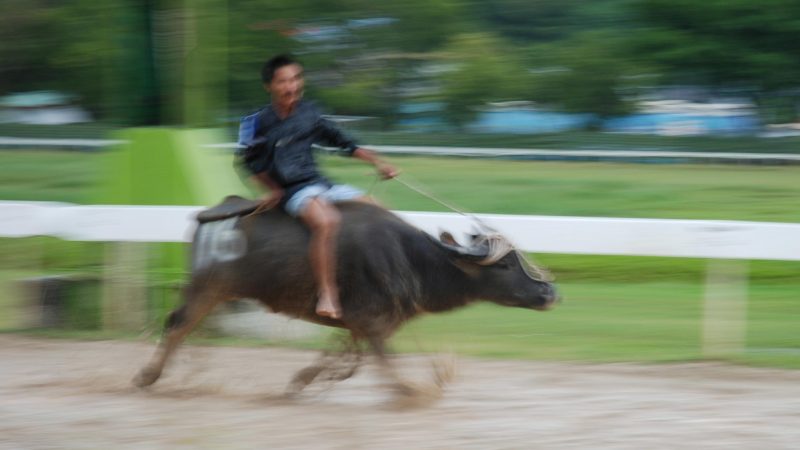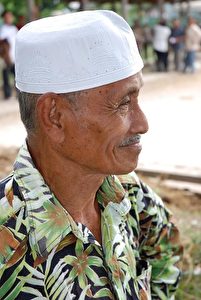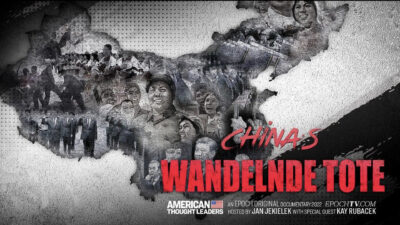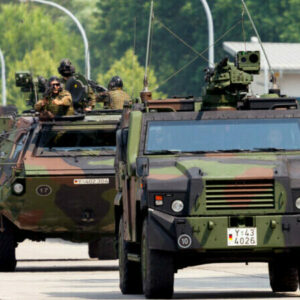
Water Buffalo Racing in Borneo

When traveling to Borneo, the third largest island in the world, one comes to expect the unexpected. It’s a place replete with legends about headhunters and rare creatures that go stealthily into the night.
Harvest Festival Delights
Adding to the excitement of my arrival in Kota Kinabalu, the capital city of the Malaysian state of Sabah, was the most talked about event of the year—the harvest festival known as Tadau Kaamatan. It is a key celebration in the lives of the Kadazan-Dusun, an indigenous people in the region who rely on rice for their livelihoods. The month-long festival is an offering to Bambarayon, a spirit that the Dusun people believe embodies all parts of the rice paddy.
With its carnival-like atmosphere, the event attracts thousands of people fueled by the free flowing vintages of „tuak“ (rice wine) that packs a potent punch of alcohol. While I walked around Kota Kinabalu, a thriving resort city with a population of more than 350,000 located on the shores of the South China Sea, I become intoxicated by the atmosphere of what is seemingly a perpetual party. Punctuated by open-air markets, where deep-fried banana chips are prepared next to fresh squid sizzling on grills, it’s easy to fall in love with Kota Kinabalu.
But this tranquil moment took a sharp turn when I walked into the local tourist information office and the person behind the desk handed me a leaflet stating, „Water Buffalo Racing—Royal Sabah Turf Club.“ Keen for local adventure, I immediately headed over to the racetrack located at the edge of city. Founded in 1898, the Turf Club is a local haunt for horse racing enthusiasts with the flare only Kota Kinabalu can offer. Near the entrance of the track are a young boy and an older man dressed in traditional costumes mounting horses draped in a colorful rainbow of silk. But on this day water buffaloes compete for my attention. A rare once-a-year water buffalo race is being held to honor the beasts of burden that slog alongside their human masters in the rice fields of Sabah and beyond.
And then suddenly I notice him in the paddock—a muscular, sure-footed, water buffalo with the number 16 unceremoniously painted on his hind quarters.
„His name is Kompang Jaya,“ offered his owner, Encik Hj Alin Sinkir, who is simply known around this region of the world as Mr. Alin.
Kompang is the word for a small drum and jaya means success in the Malay language. Or, as I loosely translate, Kompang Jaya means the „drumbeat of money.“
„He’s fast and will be one of the top finishers,“ said Mr. Alin.
A respected farmer in the nearby community of Kota Balu, Mr. Alin has four hectares of rice fields. For him a strong, quick water buffalo is more than a passing fancy. A good buffalo that can plough through a muddy field more efficiently than any tractor can be the deciding factor between a productive year on the farm or financial failure.
Yet, on this day Mr. Alin’s water buffalo represents the potential of bragging rights for an entire year and a purse of 1,000 Malaysian ringgits (USD$291.97), which will go to the owner of the beast with the swiftest hooves.
And They’re Off!
 PROUD ONLOOKER: Mr. Alin, owner of the sure-footed Kompang Jaya, watches the buffalo races. (Wes Lafortune)
PROUD ONLOOKER: Mr. Alin, owner of the sure-footed Kompang Jaya, watches the buffalo races. (Wes Lafortune)Caught up by Mr. Alin’s brimming confidence in Kompang Jaya, I plunk two ringgits down on number 16 in race number nine. With a field of 16 entrants, Mr. Alin’s buffalo is no shoo-in for victory with stiff competition expected from last year’s champion, Laki Laki, number 13.
With race time finally at hand, I carefully watched as the water buffaloes paraded out onto the sloppy mud track, which was still suffering from the effects of a rainstorm that had pelted it earlier in the afternoon. A feeling of tension hung in the oppressively humid air. The rain-soaked throngs of mostly men took to the bleachers and craned their necks toward the starting gate in an effort to get more glimpses of their favorite beasts seconds before they burst down the track. In elegant contrast, the men seated precariously atop these stocky animals appeared as relaxed and in control of a 882-pound water buffalo as any well-paid jockey riding high in the saddle of a million-dollar thoroughbred at the Kentucky Derby.
As the half-mile race finally got underway, the water buffaloes bolted from the gate. What was at first a close contest, with Mr. Alin’s prized buffalo running well, soon turned to disappointment as a long shot Pitas Baru (named after an interior region of Sabah) sped away from the pack and claimed first place. Kompang Jaya finished a close but disappointing second.
Post-race I walked over to where Mr. Alin was standing and discovered a man not bitter in defeat but instead intensely proud of his working asset. Perhaps it was the $800 ringgits (USD$233.57) he just earned for his animal’s second place finish that eased the sting of loss. However, I think it was just as likely the joy he takes in seeing Kompang Jaya receive recognition for his physical prowess outside the confines of the rice fields.
„I told you so,“ said Mr. Alin. „I told you he would finish in the money.“
With a broad smile on his face he said, „Second this year, but next year he’ll win.“
As I depart the Turf Club, I take one more moment to contemplate the beasts of Borneo’s rice fields and how, in this remote part of the world, man’s best friend isn’t a dog, but is a water buffalo.
Wes Lafortune is the editor of www.worldtrekker.ca





























vielen Dank, dass Sie unseren Kommentar-Bereich nutzen.
Bitte verzichten Sie auf Unterstellungen, Schimpfworte, aggressive Formulierungen und Werbe-Links. Solche Kommentare werden wir nicht veröffentlichen. Dies umfasst ebenso abschweifende Kommentare, die keinen konkreten Bezug zum jeweiligen Artikel haben. Viele Kommentare waren bisher schon anregend und auf die Themen bezogen. Wir bitten Sie um eine Qualität, die den Artikeln entspricht, so haben wir alle etwas davon.
Da wir die Verantwortung für jeden veröffentlichten Kommentar tragen, geben wir Kommentare erst nach einer Prüfung frei. Je nach Aufkommen kann es deswegen zu zeitlichen Verzögerungen kommen.
Ihre Epoch Times - Redaktion